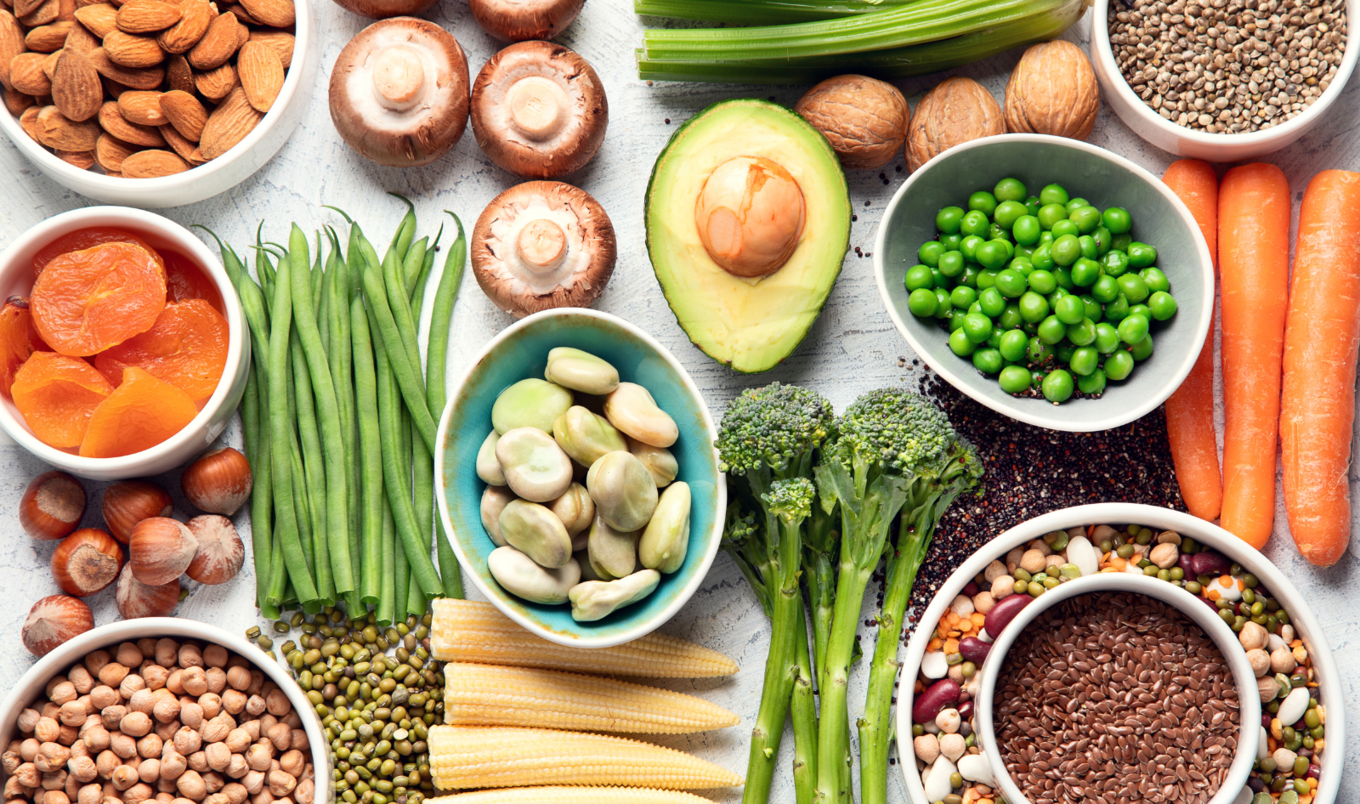A plant-forward diet could improve men’s health to prevent and manage conditions such as benign prostatic hyperplasia (BPH), erectile dysfunction (ED), and prostate cancer (PC), according to a recent study published in the medical journal Urology.
Researchers in the United States performed a systematic review of existing data to investigate whether plant-based and plant-forward diets could help with the prevention and treatment of these common health conditions in men.
Previously, plant-based diets have been thought to protect against BPH, ED, and PC by regulating sex hormone levels, nitric oxide level augmentation, and improvements in chronic or long-term conditions related to the diseases. However, the benefits of plant-forward diets in preventing and managing BPH, ED, and PC are unclear.
 Unsplash
Unsplash
In the present systematic review, researchers evaluated the relationship between consuming plant-forward diets and commonly observed male health conditions such as BPH, ED, and PC. Databases such as Medline and PubMed were searched for English articles on studies involving human participants consuming plant-based or plant-forward diets published between 1989 and 2022, excluding reviews, editorials, commentaries, and abstracts.
In total, 346 records were initially identified, but many of them did not meet eligibility criteria. Ultimately, 24 eligible records were considered for the final analysis. Among them, significant diversity was found in the data search concerning study designs, including evaluation of diets, exposure duration, sample population, and utilization of other modalities such as mindfulness.
Overall, the study findings showed that consuming plant-forward diets could aid in preventing and managing male urologic conditions such as BPH, PC, and ED.
Plant-based diet slows prostate cancer
This new analysis adds to a growing body of research on the health benefits of a plant-based diet, particularly for prostate cancer, which is the second-most common cancer in men.
 Getty Images
Getty Images
Research presented earlier this year found that a plant-based diet that includes plenty of fresh fruits and vegetables could reduce both the progression of prostate cancer and the risk that it could return.
This study notes that for prostate cancer, individual plant foods, such as tomatoes with lycopene, appear to reduce prostate cancer incidence and mortality. However, less is known about plant-based dietary patterns and prostate cancer survivorship.
What is most notable about this study is that the men with prostate cancer who reported diets containing the highest amounts of plants had a 52 percent lower risk of disease progression and a 53 percent lower risk of recurrence compared with those whose diets had the lowest amounts of plants.
“This study indicates that plant-based dietary patterns are associated with lower risk of [prostate cancer (PC)] progression and recurrence, particularly among older men and those who reported a higher intensity walking pace,” the study notes.

Similarly, another study published in the Journal of Urology found that greater overall consumption of plant-based foods is associated with a lower risk of prostate cancer in men under the age of 65.
Specifically, in men under 65 years of age at diagnosis, greater overall consumption of plant-based foods was associated with a lower risk of advanced prostate cancer. Among younger men, greater consumption of a healthful plant-based diet was associated with lower risks of total prostate cancer.
Dairy and prostate cancer
Conversely, a study published last year in the scientific journal The American Journal of Clinical Nutrition found that men who regularly consume dairy, particularly milk, compared to those who abstain from it, could be at approximately a 60-percent higher risk of developing prostate cancer.
 Canva
Canva
The study found that men who consumed 430 grams of dairy per day (which equates to 1¾ cups of milk) faced a 25-percent increased risk of prostate cancer compared to men who consumed 20.2 grams of dairy per day (or about ½ cup of milk per week).
When the highest dairy intake group was compared to the men who consumed zero dairy, that risk was much higher. The type of milk—full fat versus low fat—was not linked to significant variation in prostate cancer risk.
Researchers also noted that intake from non-dairy calcium sources did not play a role in prostate cancer risk, suggesting that substances other than calcium in dairy are involved.
 Canva
Canva
“Our findings add important weight to other evidence associating dairy products, rather than non-dairy calcium, as a modifiable risk factor for prostate cancer,” Gary Fraser, the study’s principal investigator and professor at Loma Linda University School of Medicine and School of Public Health, said in a statement.
For the latest vegan news, read:
JUMP TO ... Latest News | Recipes | Guides | Health | Subscribe









